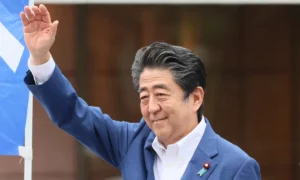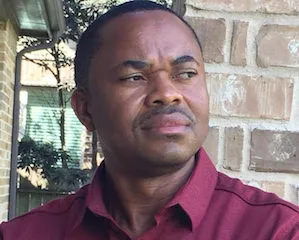By Osmund Agbo
On May 1,1954, an eccentric South Korean by the name of Sun-Myung Moon founded a religious group he called the Unification Church. Though his teachings were controversial and some would label it a cult, it soon gained followership in South Korea, Japan and many other Asian countries. In fact, by the late 50’s to early 60’s, the Church had established branches in not just Asia, but most of Europe and many cities across the United States. By a weird twist of fate, however, Japan lost her longest serving Prime Minister in the hands of a man who bore a king-size grudge against Mr. Moon’s church. But we will come back to that a little later.
In the old city of Nara, Japan’s most influential former Prime Minister made a campaign stop to bolster the chances of his fellow party-men in the upcoming election to the nation’s upper house. The Liberal Democratic Party needed a big win to be able to push through some major legislative agenda. And who could do it better than its biggest star?
Mid-speech, Shinzo Abe collapsed on his face and was seen bleeding in the street, shot in the neck. His security detail tackled a man nearby to the ground. He was airlifted and quickly attended by a team of doctors in a nearby hospital. But less than six hours later, Abe, the longest-serving leader in Japan’s postwar history, was dead at age 67.
The story of Shinzo Abe’s rise is a textbook picture of a leader born to rule and groomed from birth. He was born into a prominent political family in Tokyo and was the grandson of a former Prime Minister, Nobusuke Kishi. Having graduated from Seikei University with a bachelor’s degree in political science, he then proceeded to the University of Southern California, United States where he studied English as a visiting student.
His major entry into the world of politics was when he won an election in 1993, into the House of Representatives. He rose quickly and became Japan’s youngest post-war Prime Minister but had to resign just after a year due to challenges from ill health. When his health improved, however, he easily staged a comeback and regained his position as Prime Minister which he held between 2012 to 2020. In September 2020, Abe resigned again, citing a relapse of his ulcerative colitis as the reason. At the time of his death, he had presided over a period of remarkable political stability in Japan and decisive electoral victories for his party.

Abe’s economic policy later nicknamed Abenomics sought to remake Japan’s ailing economy and was largely successful. He did that by embarking on bold monetary and fiscal policies while at the same time, pursuing far reaching structural changes in the area of energy, corporate governance, labor market and agriculture.
He was also successful politically, quite unlike his predecessors who struggled to govern Japan and were hampered by internecine struggles and divided governments. Prior to his assumption of office, Japan had seen an insane turnover of six prime ministers, each lasting just about a year. Through a series of administrative restructuring, Abe was able to stabilize the political institutions allowing Japanese leaders to exercise effective leadership.
Throughout his time, he consistently espoused a vision of the Pacific region that allowed democracy to thrive. Against China’s wishes, he maintained that Taiwan was a crucial security interest for democratic nations in the Indo-Pacific and rooted for collective alliance with other world democracies. On June 8th, the day Abe was assassinated, Japan’s naval forces together with that of the United States, India, and Australia, were participating in the largest military exercise ever staged in the Pacific Ocean, known as RIMPAC 2022. That was his vision.
Abe’s negatives mostly have to do with his nationalism which manifested in his consistent attempt to whitewash history by changing textbooks used in schools and downplaying Japan’s wartime brutality. Such an attitude damaged his efforts at alliance-building with China and other East Asian allies like South Korea, whose citizens were among the victims of Japanese atrocities.
Even though he failed in his bid due to lukewarm public support, one of the biggest legacies of the former Prime Minister Abe is his effort to change the pacifist constitution that the United States imposed on Japan after World War II. His main goal was to make Japan comfortable again with using military force. With the era of Pax-Americana rapidly winding down and the United States becoming less and less assertive, Abe believed that the only way to fill the void and put despots like Putin in check was to build a heavily militarized democratic alliance.
In the face of a belligerent North Korea and a China with expanding influence, Abe believes that pacifism is self-defeatist. Bullies are only dissuaded by the threat of counter-force and not an appeal to good conscience. Islamic terrorists in Nigeria and the world over, can attest to the fact that pacifism is antithetical to the realities of today’s world.
All around the world, Christian churches are constant targets of brutal attack by Islamic insurgents. Only last months, terrorists wielding AK-47 rifles and improvised explosive devices attacked the congregation at St. Francis Catholic Church in Owo, Ondo State, during mass on Pentecost Sunday. More than 40 human beings were massacred in cold blood while countless others sustained life-threatening injuries. The very predictable response from the church and the Christian Association of Nigeria (CAN) each time these things happen is to ask for more prayers. Prayers without taking concrete steps to protect oneself is cowardly and lame.
Christian pacifism tends to propagate the doctrine that any form of violence is incompatible with the Christian faith. They buttress their point by quoting certain passages from the scripture, especially where Jesus warned against “An eye for an eye, and a tooth for a tooth. Instead, he encouraged his followers to turn the cheek should someone strike you on the right cheek.
Like pacifists, we must be peace-loving people and should never take delight in going to war. But unlike pacifists, we argue that war is sometimes morally justified and even necessary. Didn’t the Bible even admonish that “There is an occasion for everything…a time for war and a time for peace?” (Ecclesiastes 3:1,8) With the frequency of attacks ratcheting up every year, Nigerian Christians should consider, at the very least, having armed guards at the places of worship. Defending one’s life does not suggest a call for war and it’s certainly unchristian not to do one’s part and expect God to come to our defense.
Back to the Unification Church…
The beliefs of the Unification Church hinge on restoration of humankind through union. The church is world-famous for its mass weddings, in which thousands of couples are married at the same time, and in some cases, the brides and grooms meet each other for the first time on their wedding day. Moon and his wife were believed by Unificationists to have led a sinless life and their nine children, the first human beings without the burden of original sin.
In 1978, a British tabloid, Daily Mail, published an article against the church with the headline: “The Church That Breaks Up Families.” The Unification Church has been accused of brainwashing her members to part with large sums of money in donations. In 1987, about 300 lawyers in Japan formed an association called the National Network of Lawyers Against Spiritual Sales, following complaints alleging that the Unification Church had forced them to make unreasonably large donations.
Tetsuya Yamagami, the 41-year-old man that murdered Prime Minister Abe, alleged that the Unification Church forced his mother to make a large donation, after which the family went bankrupt and life became unbearable. Abe’s sin was sending video messages to organizations related to the Church which the assassin interpreted to mean that the former Prime Minister was in cahoots with the “church” and helping it spread in Japan. He didn’t deserve to die in the hands of this lunatic who owned up to his crime and is already in custody.
Today, the entire world is mourning the loss of a far-sighted man whose reach was way beyond his grasp and left an indelible footprint in the sands of time. It is our hope that when the time for reckoning comes, the State should look beyond the deranged soul that pulled the trigger on July 8th. May we also have the courage to address the monumental fraud perpetuated in the name of Christianity, by charlatans while mounting the pulpit, all across the world.
Till then, Goodnight the great one. Fare-thee-well Shinzo Abe.
Dr. Agbo, a Public Affairs analyst is the coordinator of African Center for Transparency and Convener of Save Nigeria Project. Email: Eagleosmund@yahoo.com

